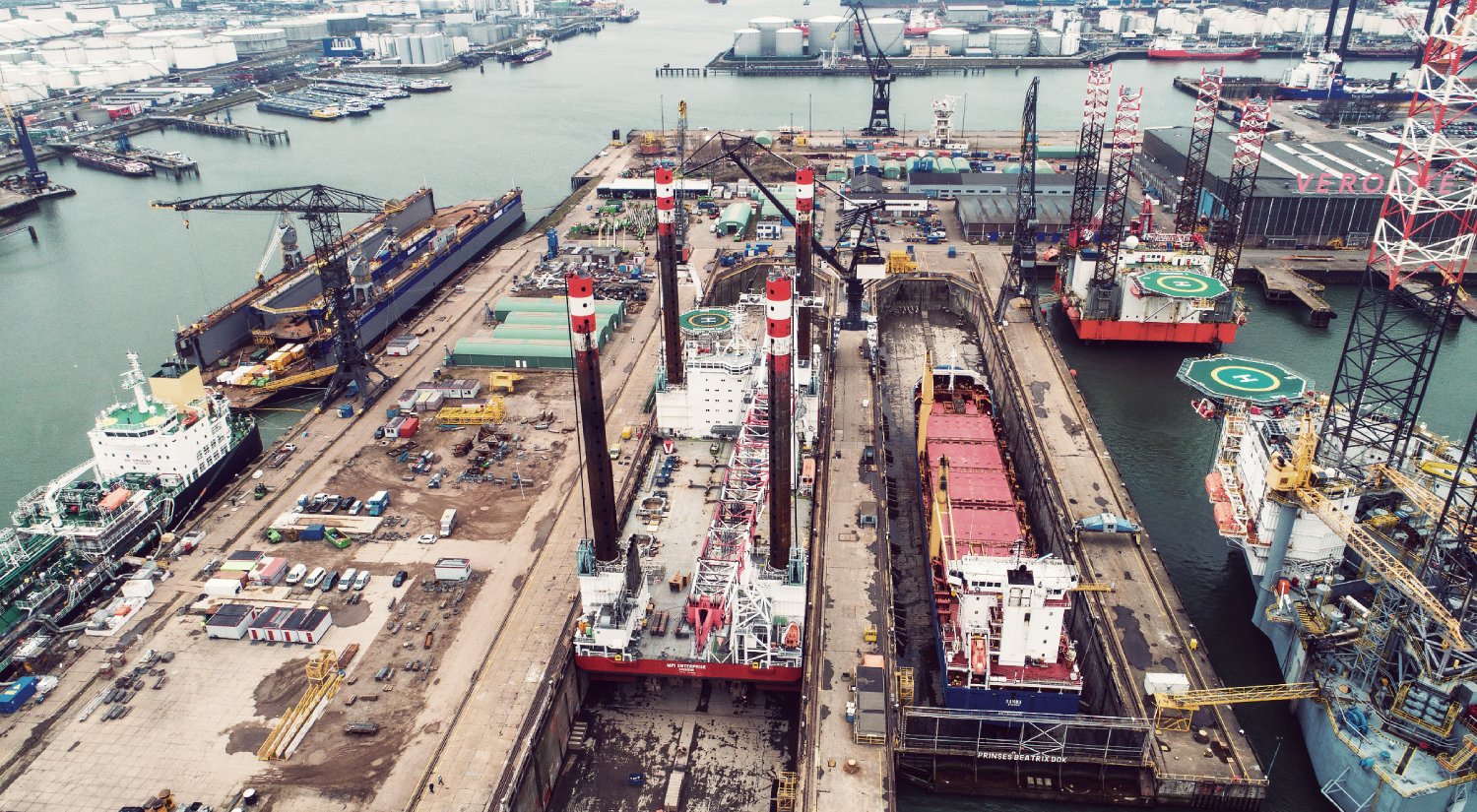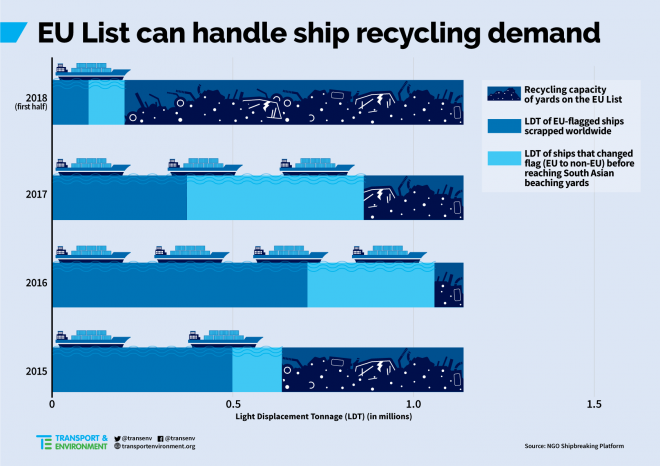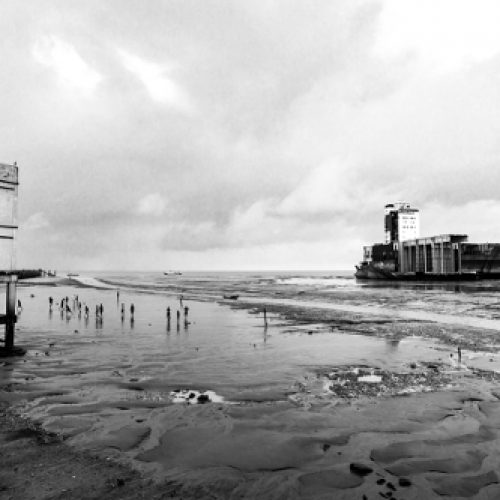Press Release – Europe has capacity to recycle its ships, new data shows – yet shipowners want to use dangerous, polluting yards abroad
Ship recycling yards approved by the EU will have enough capacity to handle demand from EU-flagged ships that need to be scrapped, a new analysis shows. The shipping industry wants low-cost ship ‘breaking’ yards outside the EU – with dangerous working conditions and poor environmental standards – to be added to the EU list of approved facilities in order to meet demand from vessels bound by the bloc’s ship recycling law, which enters force on 1 January 2019. But the current EU list can accommodate the numbers and sizes of EU-flagged ships that are scrapped every year, the new report by NGOs Shipbreaking Platform and Transport & Environment (T&E) shows.

The 20 EU yards currently recognised as meeting ship-recycling standards have had the capacity to handle all EU ships broken since 2015, the report shows. Shipbreaking Platform and T&E said lawmakers should not succumb to pressure to either delay the implementation of the regulation or add sub-standard shipbreaking facilities – which would never be allowed to operate in EU countries – to the EU list.

Yards that use the beaching method are of particular concern. Vessels are full of hazardous materials, including asbestos, chlorine compounds, heavy metals and residue oils. On a tidal mudflat it is not possible to contain these toxics – instead they are washed out to the sea, and ravage coastal ecosystems. Without proper protective equipment, workers are also sickened and exposed to unnecessary risk. Accidents at the beaching yards kill or maim young men each year due to unsafe practices. [1]

Shipowners misleadingly cite the EU yards’ historical capacity to claim that they are over-capacity. However, this does not take into account the EU facilities operating under capacity due to being undercut by sub-standard competition overseas. It also ignores the capacity of newly-opened yards which are just starting to operate.

The European Commission, national experts and stakeholders meet on 3 October to discuss the implementation of the regulation.
Related news

Press Release – The EU agrees: the recycling of ships is a matter of global environmental justice
The Basel Convention’s ban on the export of toxic ships to developing countries reestablished
... Read More
Press Release – Ship owner and two directors fined by Dutch Court for breaching EU waste law
Dutch company Jumbo and two of its directors fined for their involvement in the illegal export of an end-of-life ship to Turkey for recycling.
... Read More
Press Release – Recent fires at Gadani yards prompt authorities to shut down all shipbreaking activities
On 11 October a tanker caught fire at the Gadani shipbreaking beach that holds a deplorable record of life threatening accidents. Fortunately, no casualties were recorded. Only… Read More

Platform News – SAVE THE DATE: “The Circular Economy” on 13 October 2016 in Brussels
The Circular Economy will be high up on the agenda of an event organised by the European Parliament’s S&D Group on Thursday 13 October 2016. The Platform’s… Read More

Platform News – Dead U.S. Ship on Four-Month Tow Ends on Indian Beach
The HORIZON TRADER, a 42 year-old American built and operated container ship, was beached earlier this month at the notorious shipbreaking site of Alang, India, despite the… Read More

Press Release – Platform publishes list of ships dismantled worldwide in 2016
Read our country-specific press releases: Brazil | Germany | Greece | Italy


